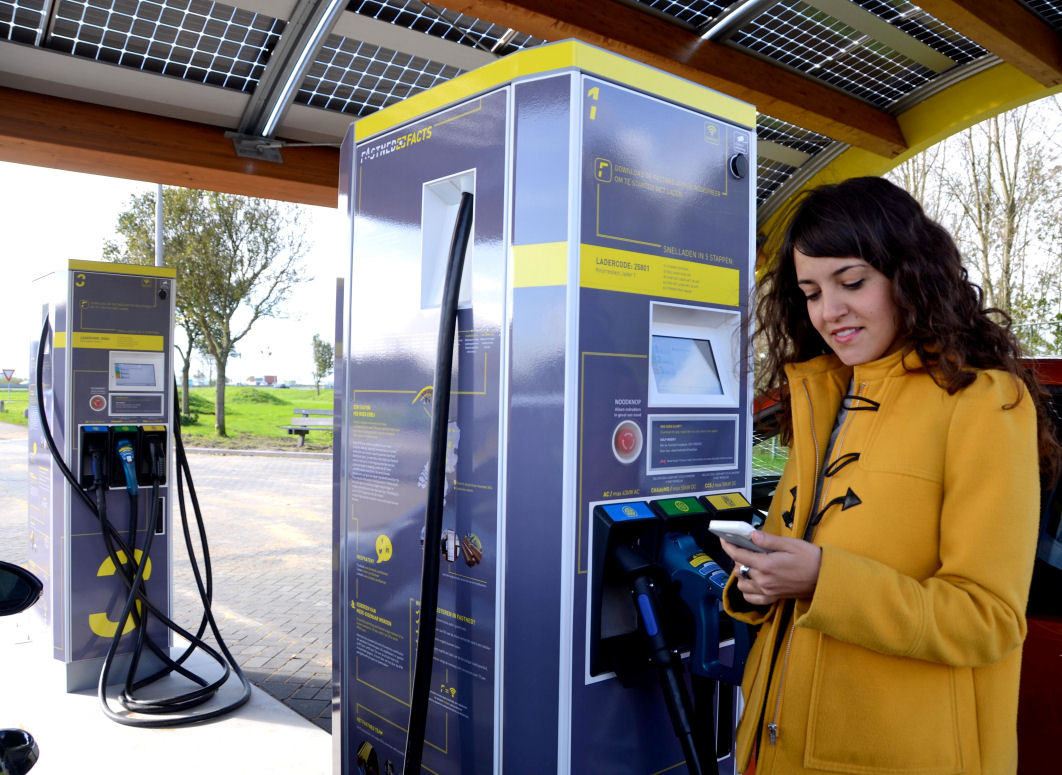SMMT calls for new zero-emission measures
 The SMMT says investments in EV infrastructure must be paired with purchase incentives (Photo: ABB)
The SMMT says investments in EV infrastructure must be paired with purchase incentives (Photo: ABB)
February’s car registration figures were released as the SMMT calls on the Chancellor to use next week’s Budget to announce bold new measures to make new-tech zero emission-capable cars, including plug-in hybrids, more affordable for mass-market buyers. In 2020, manufacturers will bring more than 23 new battery-electric and ten plug-in hybrid electric cars to the UK to add to the more than 65 already on sale, but take-up of these new models depends on affordability and the provision of adequate charging infrastructure.
SMMT is calling for the removal of VAT from all new battery-electric, plug-in hybrid electric and hydrogen fuel cell electric cars – a move which would cut the purchase price of an average family battery-electric runaround by some £5,600. Combined with additional measures, including the long-term continuation of the critical plug-in car grant at current levels and its reintroduction for plug-in hybrids; and exemption from VED and insurance premium tax, the upfront cost of these vehicles could be cut by as much as £10,000. The SMMT hopes that the greater cost parity with conventionally-powered vehicles delivered by such measures would make them a viable option for many more buyers.
Incentives & infrastructure investments needed
Based on current market forecasts, SMMT calculations show that the removal of VAT could increase sales of battery-electric cars alone to just under one million between now and 2024, resulting in an additional CO2 saving of 1.2 million tonnes over this period. However, the SMMT stresses that this must be part of a comprehensive package of incentives implemented alongside substantial investment in charging infrastructure to ensure a sustainable transition for consumers and businesses of all incomes, regions and lifestyles. “Only by addressing both these issues can the government’s accelerated ambitions for zero-emission vehicle sales be met,” comments the trade association.
“Another month of decline for the new car market is especially concerning at a time when fleet renewal is so important in the fight against climate change,” comments Mike Hawes, SMMT chief executive. “Next week’s Budget is the Chancellor’s opportunity to reverse this trend by restoring confidence to the market and showing that government is serious about delivering on its environmental ambitions. Industry has invested in the technology, with a huge influx of new zero- and ultra-low emission models coming to market in 2020, and we now need government to match this with a comprehensive package of incentives and infrastructure spending to accelerate demand.
“To drive the transition to zero-emission motoring, we need carrots, not sticks – as the evidence shows, talk of bans and penalties only means people hang on to their older, more polluting vehicles for longer. It’s time for a change of approach, which means encouraging the consumer to invest in the cleanest new car that best suits their needs. If that is to be electric, government must take bold action to make these vehicles more affordable and as convenient to recharge as their petrol and diesel equivalents are to refuel.”
The SMMT is adamant: Environmental issues must be addressed now. This means encouraging fleet renewal of all technologies, whether they be fully electric, hydrogen, hybrid or modern, efficient petrol and diesel engine cars, because these vehicles can deliver air quality and climate change improvements now. “Until electric vehicle affordability and charging infrastructure gaps are addressed, these vehicles will remain a minority,” the association concludes.




Comments